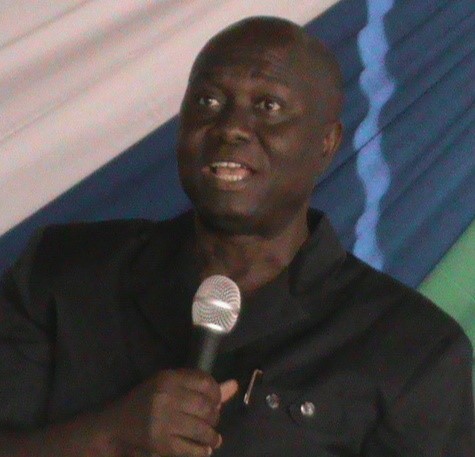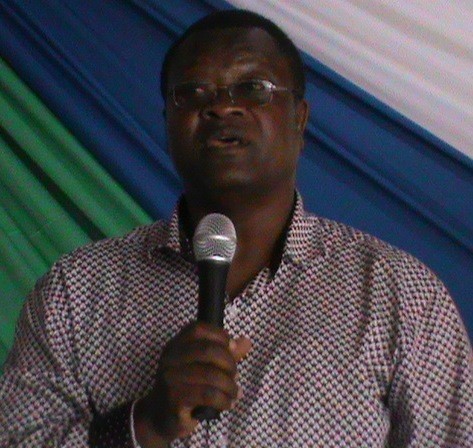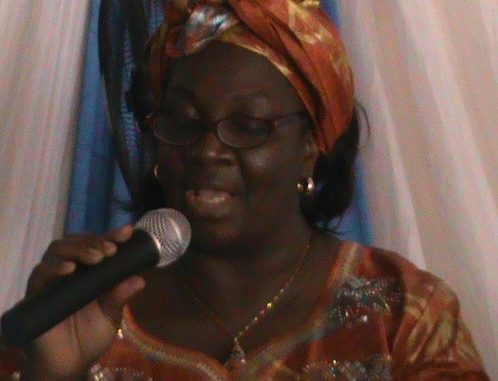
Deputy Health Minister 1 Madina Rahman addresses District Medical Officers on MOHS District and National 2016-2017 Operational Plan
Freetown, Mar. 31, 016 (MOHS) – Deputy Health and Sanitation Minister1, Madam Madina Rahman has said “It is only through effective planning that accomplishes the aspiration of where you want to be at a given time”.
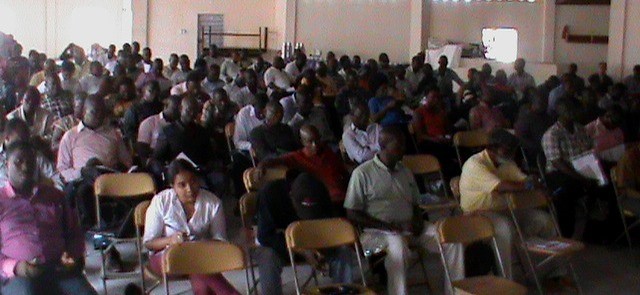
Cross section of participants
The Deputy Minister made this statement at a three day District Workshop for the Sierra Leone Operational Plan 2016-2017 at the Hotel Conteh U in Makeni on Wednesday March 30, 2016.
Organized by the Ministry of Health and Sanitation, Madam Rahman described the planning workshop as unique as it will be costed and serve as a document to guide the partners on their priorities to overhaul the health sector.
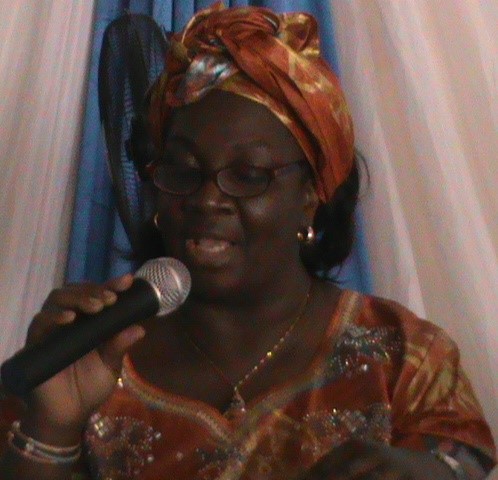
Deputy Health and Sanitation Minister 1, Madam Madina Rahman making her launching address
She advised all and sundry to devote much of their time in the next three days to tailor out interventions that are aligned and are contributing towards the achievement of national priorities.
The Deputy Minister disclosed that the Ministry has been working on priorities such as the establishment of Postgraduate Training and the enactment of the Teaching Hospital Acts, the establishment of the National Emergency Medical Services, and the introduction of the Expanded Sanitary Inspection Compliance and Enforcement (ESICOME) among others. These Acts, she told her audience have the potential of improving the medical training and health care in Sierra Leone as well as saving millions of dollars from medical postgraduate training abroad.
She reminded participants about the damage caused by the Ebola outbreak on the health sector for which government alongside its development partners and NGOs have put together a Recovery Plan and a resilient health system approach aimed at revamping the systems in a bid to respond to similar outbreak in the future.
Madam Rahman maintained that the implementation of the Post Ebola Recovery Plan is focused in ensuring safety among health workers as well as restoring essential health services. She lauded the District Health Management Teams who have worked closely with implementing partners in the execution of the 6-9 months Plan. Her Ministry she said is poised to positively implement the 10-24 months Plan towards improving quality coverage of health services in Sierra Leone.
The Deputy Minister thanked WHO and the World Bank for their technical support to the Ministry in the development of not only the operational plans but also in other key policy areas.
The WHO Country Representative, Dr. Anders Nordstrom expressed appreciation over the progress made on the development of the plan, hoping that it would be a well-coordinated plan for a resilient health system.
He reminded District Health Management Teams about accountability for the effective management of funds at district level and reiterated WHO’s continued support to the Ministry and the government.
Deputy Chief Medical Officer II, Dr. Amara Jambai stressed the need for participants to incorporate their ideas into the National Plan during the three day working sessions.
Dr. Amara Jambai
He told the meeting that District Health Management Teams are strategic in the entire process, adding that they should be empowered to deliver more, especially when it would come a time partners take their exit.
Dr. Jambai encouraged the District Medical Officers to demonstrate leadership and to provide what he referred to as a marketable plan that would meet the challenges ahead
The Director of Planning, Policy and Information, Dr. Samuel Kargbo said the objective of the workshop is to develop a costed and harmonized comprehensive two-year health sector operational plan that incorporates the priorities of the 10-24 months Recovery Plan.
Dr. Samuel Kargbo
He said it would help coordinate structures and strengthen linkages between health partners and community stakeholders to improve community health service delivery.
Dr. Kargbo reiterated that the 10-24 months Post Ebola Recovery Plan is limited in scope and does not address all the key priorities for improved overall health service delivery.
Other highlights include presentations on status update from all the districts, a focus from the central level 10-24 month plan, promoting collaborative working relationship at district level on the concept of team building and group work.
JAK/KK/MOHS/SLENA

